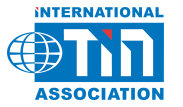Materials such as tin are increasingly assessed by consumers, investors and legislators on the three aspects of sustainability – economic growth, contribution to society, and protection of the environment. Recognising the importance of these factors in a modern world, the tin industry has initiated a long-term action plan which aims to demonstrate the positive contributions and sustainability of tin. This short 24 page report provides an introduction to the role of tin in the global economy, describing its history, usage, production and future potential. It also provides descriptions of a series of projects in which the tin industry supports improvements in environmental health, reductions in energy consumption and economic development in some of the poorest countries.
Tin production is connected with all three aspects of sustainability. Perhaps most importantly, mining activity provides a livelihood for many thousands of miners and associated workers and their families in developing countries, which account for some 98% of total world production. Mining can also stimulate development through tax revenues and export earnings and by supporting investment in transport and other infrastructure. Most leading mines and smelters are also committed to corporate and social responsibility programmes and post-mining land rehabilitation.
Recycling is also playing a growing role, with more than 30% of tin use now accounted for by secondary refined tin and alloys. Products containing tin also contribute to quality of life, with a number of existing and new applications connected to health and energy-saving benefits.
Click here to download a free copy of the report


